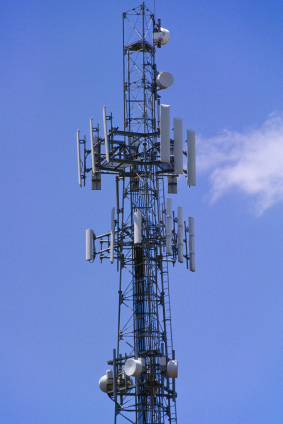Updated Wireless communications course
April 18th, 2023

The pace at which mobile technologies are developing shows no sign of abating, with networks becoming faster, more robust and with ever increasing coverage. In coming years, mobile technologies will be used for a growing number of innovative uses in many industries. With their faster speeds and lower latency, mobile networks now rival fixed-line broadband for consumers, especially in emerging markets where wireless services can be deployed faster than building wired infrastructure.
To keep abreast of the latest developments in mobile technology, PTT has released an updated version of its “Wireless communications” course. This self-paced online course is ideal for those who require an appreciation of the technologies used in wireless networks without the need for too much technical detail. The course can be used as a pre-requisite for the study of PTT’s more advanced courses covering mobile radio communications.
PTT has several courses covering mobile and wireless networks and services including new courses covering 4G and 5G access networks and advanced mobile systems designed for those who are already or intend to be working on modern mobile networks.
Comments Off on Updated Wireless communications course
50 years of cellular history
April 3rd, 2023

Fifty year ago on the 3rd of April 1973 Marty Cooper, a Motorola engineer in the USA, made the first ever phone call from a handheld cellular phone to a colleague working at Bell Labs. That prototype “brick phone” gave 30 minutes of talk time after a 10 hour charge.
It would take another ten years before the first handheld mobile phone, again made by Motorola, was available commercially to make calls over a cellular service.
Mobile telephony services had been available from the 1950s, but incoming calls had to be manually connected to the nearest base station by an operator and mobile terminals were large, expensive and normally confined to cars.
Bells Labs were at the forefront of the development of cellular systems with the concepts of cells and handover between cells originating from that USA-based organisation. But the first automatic cellular commercial phone service was offered in Tokyo in 1979. However, this service was confined to car phones.
The first cellular service that allowed international roaming was released in Nordic countries including Finland in 1981. The phones available for this system were portable (in a shoulder bag) but not “handheld”.
Other automatic cellular systems followed in other countries with the USA system using that first handheld phone arriving in 1983.
But it wasn’t until the 1990s that the ownership of a mobile phone expanded beyond a narrow base, with the development of the GSM digital cellular system in 1991 leading to the smartphones we all use today.
Here at PTT we are interested in telecoms history but our prime focus is providing training in the telecoms services and systems in use today and looking ahead at developments that will shape the services of tomorrow.
PTT online courses range from a course introducing mobile technology to those giving details of advanced mobile systems.
Comments Off on 50 years of cellular history
Security in telecommunications networks
March 16th, 2023

Telecommunications providers have an incredibly important role when it comes to systems security.
Not only do they hold large amounts of data on their customers, but their networks also carry sensitive information, such as financial transactions, personal data and confidential business information. Telecommunications networks are critical infrastructure, therefore any breach in system security can have severe consequences, including financial losses, reputational damage and legal liabilities.
Telecommunications networks face various security threats, such as hacking, malware, phishing and denial-of-service attacks. These threats can be initiated by both external and internal sources such as state-sponsored hackers or by employees intentionally or unintentionally compromising the network’s security.
To mitigate these risks, telecommunications networks must implement robust security measures to protect their systems and data. Providers also must comply with regulatory requirements to ensure the protection of personal information. The Telecommunications Security Act, which became law in 2021, gives the UK government powers to boost the security standards of the country’s mobile and broadband networks.
The PTT online course “Telecommunications systems security” provides an overview of the protection of personal data held by telecommunications providers against misuse and the protection of telecoms systems against intrusion and fraudulent misuse.
Comments Off on Security in telecommunications networks


